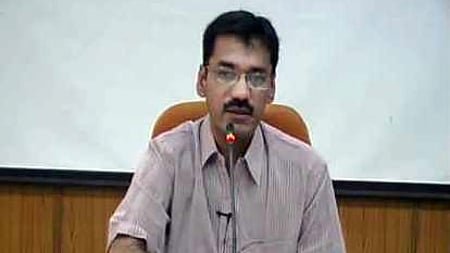HYDERABAD: The voluntary retirement of senior IAS officer Syed Ali Murtaza Rizvi has ignited a fierce political row in Telangana, exposing tensions between bureaucracy and the political establishment over alleged interference, pressure tactics, and tender irregularities.
A Sudden Resignation, a Lingering Question
The abrupt decision of senior IAS officer Syed Ali Murtaza Rizvi, a 1999-batch bureaucrat with nearly a decade of service left, to opt for voluntary retirement (VRS) from October 31 has unsettled Telangana’s political and administrative circles. While the state government swiftly accepted his request, the reasons behind the move remain undisclosed. Yet, the resignation has snowballed into a political flashpoint — with the Bharat Rashtra Samithi (BRS) accusing the Congress government of “harassing officers” and the Union Minister Bandi Sanjay Kumar alleging that honest bureaucrats are being driven out for resisting political interference.
“Telangana deserves to know why an honest and efficient officer was forced to take this step,” Kumar said, questioning whether the Congress administration was punishing officials who refused to yield to “personal or political interests.”
Allegations of Pressure and Administrative Discord
BRS working president K. T. Rama Rao claimed that several IAS and IPS officers were contemplating early retirement due to “wrongful pressures” to carry out questionable orders. “They are being forced into acts they cannot justify,” he alleged during a press briefing.
According to Rao, Rizvi had refused to comply with directives from Excise Minister Jupally Krishna Rao, who allegedly sought to push through a tendering process involving high-security holograms for liquor bottles. “The minister even wrote to the government asking it not to accept Rizvi’s resignation,” Rao added, citing a letter purportedly sent by Krishna Rao to the Chief Secretary. Rizvi, who currently serves as Principal Secretary, Revenue (Prohibition & Excise), could not be reached for comment.
FCRF Launches CCLP Program to Train India’s Next Generation of Cyber Law Practitioners
Political Counterfire and Accusations of Hypocrisy
Union Minister Bandi Sanjay Kumar escalated the debate, arguing that the officer’s exit reflected deeper systemic rot.
“If ministers can’t make an officer bend to their pressure, do they choose to sacrifice him instead?” Kumar wrote on X (formerly Twitter).
Yet, critics note that the opposition’s indignation may also be politically motivated. Congress leaders counter that the BRS itself had a history of coercing bureaucrats during its tenure.
“K. Chandrasekhar Rao humiliated officers during the Kaleshwaram probe and Formula E fiasco — blaming them for his failed decisions,” Kumar alleged, adding that “Congress is only continuing where BRS left off.”
Bureaucracy Under Strain
As tender disputes, blame games, and public spats multiply, officers privately admit that the fear of being scapegoated or sidelined is eroding morale. While the government has yet to officially comment on Rizvi’s case, the episode has renewed a larger debate: how much space does professional bureaucracy truly have in India’s politicized governance system?
For now, Rizvi’s silence — and the questions surrounding his retirement — continue to reverberate across the Secretariat’s corridors


